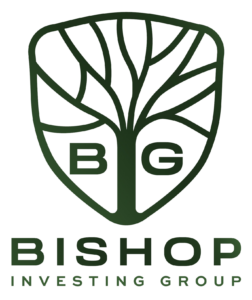Half a million dollars is a considerable sum to accumulate, and one which can lay the foundation for generational wealth if you invest it wisely. But what exactly is a ‘wise investment’?
In reality, there’s no one-size-fits-all approach. Growing wealth effectively requires a balance between the time frame, risk tolerance, and desired level of involvement based on the needs of the individual investor. By understanding your starting point and financial direction, you’re better equipped with tools to ensure your strategy will move you steadily toward your financial goals.
So, if you’re wondering what to do with $500k, it’s not a bad problem to have. In this article, we’ll show you a few tricks to start growing your $500k by opting for a diversified portfolio consisting of reliable and proven investments that work for you.
Creating a Diversified Portfolio
Diversification is a key principle in wealth management and risk mitigation. By diversifying your portfolio across multiple asset classes, you can minimize risk exposure to any single investment and increase the potential for consistent returns. Real estate is a lucrative and time-tested investment channel that can play a vital role in diversifying your portfolio.
Real estate offers solid profit margins, hedges against inflation, and provides investors with a flexible approach. More than ever, people are diversifying their portfolios with real estate holdings as a result of its tried-and-true historical advantages.
Our comprehensive guide examines how to invest $500,000 by diversifying across real estate and a few other asset classes that have promising yields. Let’s dive in!

Investing $500K in the Real Estate Market: Valuable Channels to Consider
Different real estate investment channels come with varying levels of risk, benefits, and involvement. In this section, we’ll take a look at how to make money with $500,000 through a range of real estate opportunities.
Real Estate Syndication
Private equity real estate investing is generally a passive approach with high yield potential. This method involves a sponsor (a company or individual with broad real estate market expertise) that curates deals in multifamily properties, self-storage, and other commercial assets. The sponsor handles property acquisition, value-add developments, asset management, and the resale strategy.
Meanwhile, passive investors (typically qualified investors) fund the deal by providing capital resources without the responsibility of management. As such, syndication is ideal for investors aspiring to passively capitalize on real estate opportunities while minimizing potential risks and involvement.
Syndication provides investors with the opportunity to earn either monthly or quarterly returns while their invested capital appreciates, and can also offer a range of tax advantages, making it an effective and hassle-free way to grow your $500k.
Bishop Investing Group matches qualified investors with real estate syndication deals, empowering them to earn passive, risk-adjusted income through geographical and asset-class diversification. Simply join our investor list for access to exclusive opportunities, have a chat with our team about your goals, and invest to start earning returns. Give us a call to learn more about the best way to invest $500k today!
Real Estate Investment Trusts (REITs)
Real estate investments through REITs can be an effective way to grow your wealth. In essence, REITs are entities that own, finance, or manage acquired properties, and investors provide capital to the entities.
Like real estate syndication, REITs are a passive way to invest in profit-generating assets across multiple locations. They provide various investment options such as mutual funds or exchange-traded funds, and typically offer low minimum investment thresholds and a high level of liquidity.
While REITs are required to distribute 90% of taxable income to investors, many REIT returns do not adhere to the IRS guidelines for qualified dividends. This means that high returns are often also taxed at a higher rate, which can impact your bottom line.
Real estate investment trusts can be sensitive to interest rates, dropping in value as interest rates rise. As the current economic climate is experiencing interest rate increases in multiple markets across the U.S., this may be worth taking into consideration.

Real Estate Crowdfunding
Crowdfunding is an up-and-coming investment option with a unique approach to investing in diversified assets through technology-driven platforms. Multiple investors pool their capital together on the platforms to fund a range of ventures, managed by professionals.
Investors can participate in loan-based or equity-based crowdfunding opportunities. Depending on the platform, investment minimums can be low, providing greater access to a wider range of investors. In fact, increasing numbers of platforms are offering opportunities to non-accredited investors, meaning regular individuals can gain a foothold in deals that have been previously unattainable.
Rental Properties
If you’re looking to invest $500K in a hands-on strategy, owning rental properties can be a great choice. Purchasing a single-family home requires greater upfront capital, in some cases third-party financing from a lender, and often has low liquidity. Additionally, according to your strategy, you’ll likely have to invest in ongoing operational and maintenance expenses.
Becoming a landlord requires an investor to undertake management responsibilities such as tenant screening, property management, and handling the acquisition and sale of the property on their own. However, this also allows greater control over your investment.
Rental properties can offer rental yield as well as capital appreciation subject to market conditions. To ensure a better chance of success, it’s a good idea to do your due diligence and have a thorough understanding of local real estate markets and rental property legislation in the area you’d like to invest in.

Self Storage
Investing in self-storage facilities can be a potentially lucrative avenue, even during tough economic times. The demand for self-storage facilities is created by shifts in living conditions which tend to increase during economic uncertainty, making the asset class recession resistant.
Recent years have seen consistent growth in the self-storage industry, with over 49,000 facilities currently in operation. These facilities are generating impressive profits, with billions in annual turnover.
Furthermore, this sector offers promising opportunities for long-term returns on investment. As more people continue to move to urban areas and require additional storage space, the demand for self-storage facilities is expected to increase substantially.
Bishop Investing Group offers investment options in self-storage assets, allowing investors the opportunity to access passive returns even through economic downturns. Join Bishop Investing Group today to take advantage of self-storage investment opportunities!
House Flipping
Flipping houses is an effective strategy for generating profits if approached correctly, making it an attractive opportunity for financially resilient and highly experienced investors looking for fast, hands-on returns.
To excel in this investment strategy, conducting a comprehensive market analysis is a crucial factor. This analysis entails researching property values and trends, identifying hotspots for potential buyers, and understanding the demand for properties in those locations.
As a general rule, acquisition and remodeling costs should not exceed 70% of the anticipated sale price, meaning investors must have a clear understanding of the costs involved. This includes labor, materials, permits, and even financing costs.
It’s critical to prioritize fast-selling properties in high-demand areas. Properties that remain on the market for a longer period can result in lower returns and delay the process, eventually diminishing overall profits.
The key takeaway here is that a fix-and-flip approach can be a great way to generate quick returns with a high profit margin, though you’ll need to do your due diligence and have a robust strategy and risk-management plan in place before diving in.

Alternative Investment Options
Experienced investors with significant net worth understand the importance of diversification beyond real estate. Exploring options such as bonds, stocks, mutual funds, commodities, and cryptocurrencies can build a robust and well-balanced investment plan that can weather market fluctuations. Remember to consult a financial advisor and conduct thorough research before making any investments to ensure a hands-off investment strategy that meets your needs.
Invest in Cryptocurrency
Cryptocurrency investments present fascinating opportunities for high-net-worth, financially educated investors. Bitcoin and Ethereum are a few examples of crypto investments, though the digital currency markets have expanded significantly in recent years, with a range of options available. As digital assets, cryptocurrency investments offer diversification beyond traditional investment options and the potential for great returns.
However, although relatively liquid, crypto has little regulatory oversight and high volatility. It therefore presents a higher risk than many other investment options. It’s advised to conduct extensive due diligence before investing in any cryptocurrencies and understand the underlying technology as well as the tax implications associated with digital currency investments.
Invest in the Stock Market
By diversifying your investment portfolio through stocks, index funds, or government securities, you can spread your risk across multiple investments and minimize the impact of market fluctuations.
The stock market can be volatile, and there are risks associated with buying stocks. If you’re shooting for a long-term investment, the impacts of market volatility can be mitigated. Diversifying your investments by purchasing stocks across different sectors and industries can also help reduce risk.
Using a brokerage account is a sound vehicle for entering the stock market and investing in shares of publicly traded companies. You can typically open a brokerage account with a reputable brokerage firm or financial institution. There are various options available, including traditional brokerages, online brokerages, and robo-advisors.
Once your brokerage account is set up, you can transfer funds from your bank account or deposit a check into your brokerage account.
Sound brokerage accounts can mitigate investment risk by diversifying access to a wide range of products, including stocks, bonds, mutual funds, exchange-traded funds (ETFs), options, and more. Some brokerage accounts even offer robust research and analysis tools, which can assist you in making informed investment decisions.
As always, it’s important to consult financial advisors before investing in the stock market.

Investing in a Business
Entrepreneurship presents a compelling avenue for alternative investment, affording accredited investors the prospect of both substantial rewards and formidable challenges when deploying their $500k capital. It is important to acknowledge that this particular investment strategy carries a commensurate level of risk, necessitating meticulous business planning and execution to realize sustained returns.
However, this approach does possess an inherent degree of flexibility. Accredited investors are afforded the choice to either actively oversee their own business venture, investing considerable time and effort into its management, or alternatively, to acquire an existing enterprise with an established management structure already in place.
For seasoned investors, a potentially fruitful course of action entails forging a partnership with a financial expert who specializes in financial modeling, particularly during the nascent stages of a new venture. This collaborative alliance can significantly influence investment returns, leveraging sophisticated analysis and forecasting techniques to enhance the prospects of success.
It is essential to recognize that the rewards associated with entrepreneurship can be truly transformative, offering the potential to alter one’s life trajectory. However, this avenue may not be the optimal investment option for those seeking a passive channel for their funds. The process may demand substantial exertion, unwavering commitment, and, to some extent, fortuitous circumstances.
Exchange-Traded Funds (ETFs) and Mutual Funds
For investors seeking to diversify their equity holdings, Exchange-Traded Funds (ETFs) emerge as a potential opportunity. These investment vehicles provide a streamlined and efficient means of achieving diversification, enabling the consolidation of multiple holdings in a single transaction.
ETFs exhibit a diversified nature due to their underlying basket of stocks, allowing them to track market movements comprehensively. Functioning akin to traditional mutual funds, ETFs offer investors a rewarding avenue for investment diversification, even if the two share a semblance in appearance.
While the benefits of ETFs and mutual funds are evident, it is crucial to remain cognizant of the associated risks. It is worth noting that the market value of these index funds may fall below the original purchase price if shares are redeemed. With a substantial investment fund of $500,000, experienced investors might consider allocating 10 to 20 percent of their capital to these assets.
Diversification through ETFs presents an accessible and efficient approach to mitigate risk and capture market opportunities. Nevertheless, investors should conduct thorough research, assess the liquidity and risk profile of the chosen ETFs, and align their investment strategy with their financial goals and risk tolerance.



